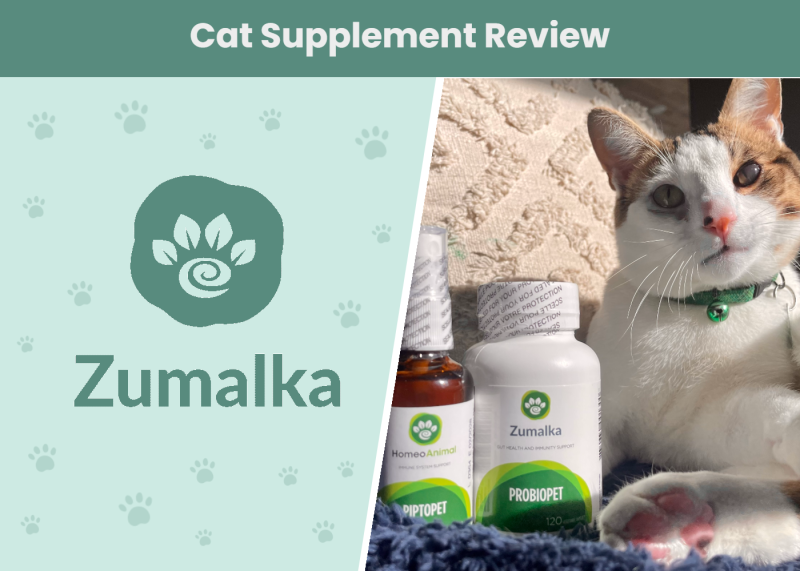Click to Skip Ahead
We give Zumalka products an overall rating of 4.75 out of 5 stars.
Seeing your beloved pet struggle with illness is never easy, no matter how minor or severe the issue is. Often, we as pet parents are left to watch our pets suffer without an option to intervene.
That’s exactly the type of helplessness Zumalka set out to relieve when they created their extensive line of homeopathic pet products.
With dozens of products featuring science-backed, natural ingredients that target everything from ear infections to cancer, Zumalka gives pet owners the power to help their pets thrive. But do these products actually work?
I had the chance to try two different Zumalka products on my ten-month-old kitten, Makoa. After a rough start in life, we are still working to get Makoa back to health. I was hopeful Zumalka’a Piptopet and Probiopet could help. After a month on both products, I have seen some encouraging results.
Keep reading to find out how these products have helped Makoa, what I like and don’t like about them, and to see my full Zumalka product review.
At a Glance: What We Received
| Image | Product | Details | ||
|---|---|---|---|---|
| Our Favorite |
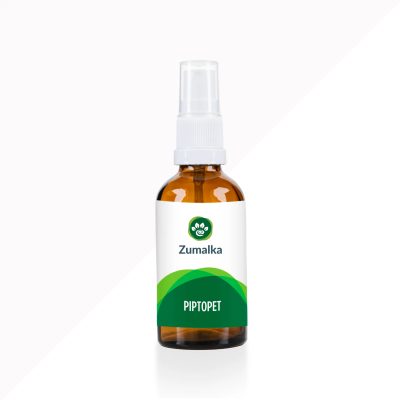
|
Piptopet |
|
CHECK PRICE |
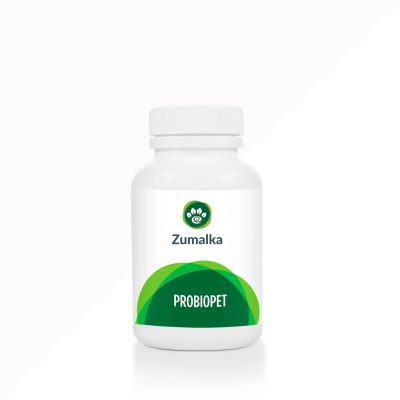
|
Probiopet |
|
CHECK PRICE |
About Zumalka
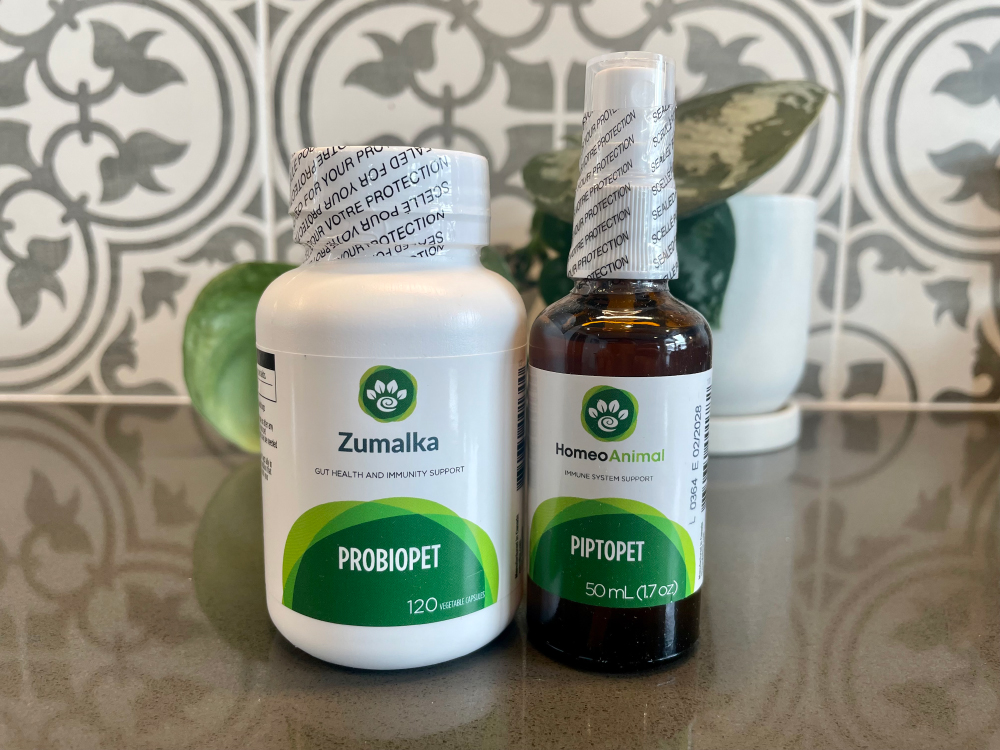
Zumalka (formerly Animal Homeopathy) was co-founded by Suzie Cyrenne, a pet owner frustrated by the care her pets were receiving with traditional veterinary medicine.
Adamant that there must be a better way, Suzie started studying homeopathy. Eventually, she launched her own business to provide other pet parents with the same holistic approaches that were working for her furry family.
Where Are Zumalka Products Produced?
Zumalka products are created in the company’s lab located in Quebec, Canada. All products are approved by Health Canada, the country’s version of the FDA. All ingredients are sourced from suppliers who meet the company’s rigorous requirements for purity and safety.
Which Type of Pet is Zumalka Best Suited For?
Zumalka makes products for dogs and cats. Most of their lineup can be used for both cats and dogs and many are safe for use in smaller pets, such as parrots, hamsters, and guinea pigs.
The company’s long list of product offerings means there is likely at least one product to benefit every pet. For instance, they offer a wide range of homeopathic options to treat gut issues, as well as specific products for kidney health, allergies, heart health, and more.
They also sell many products meant to support overall health. These can be used in both sick and healthy animals to help them thrive and extend their active years.
Key Features
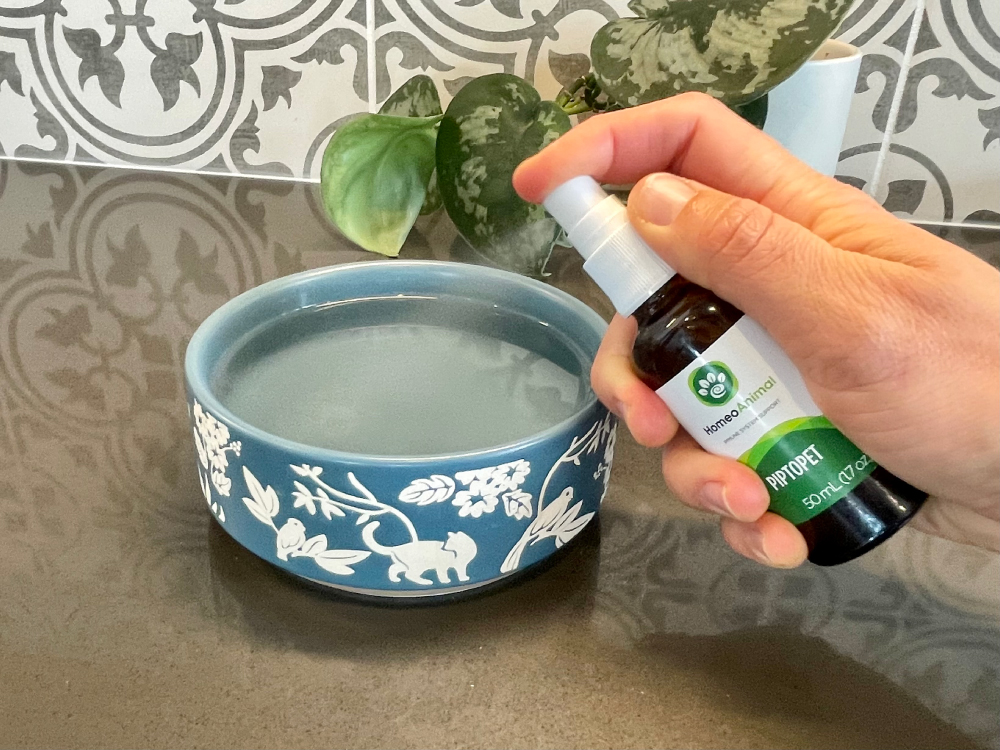
Zumalka differs from your typical pet supplement company in many ways. For one, they focus on homeopathic ingredients that are backed by science. These ingredients are packaged in a way that makes them simple to administer and many offer focused uses for specific issues while others have wide-ranging effects.
Homeopathic Ingredients
Homeopathy is a system of medicine that focuses on the body’s ability to heal itself. Plant essences and natural compounds are used to stimulate certain responses in the body that are believed to help heal specific conditions.
Homeopathy often involves tinctures and extracts that contain small amounts of the target ingredients. These mixtures are diluted and given in very small amounts. This is because homeopaths believe it only takes a tiny amount of the target property to stimulate the desired response.
Zumalka carries many homeopathic tinctures that are meant to be sprayed in your pet’s water. They also carry capsules, pills, and powders that contain natural herbs, minerals, and compounds.
Backed by Science
While homeopathy and natural medicine in general are less popular in the US, these approaches are widely used in Europe, Asia, and many other parts of the world. In addition to anecdotal evidence supporting the use of many herbal remedies, there is also plenty of science to back it up.
When Zumalka creates its tinctures and supplements, they rely on hard science and data to help them decide which ingredients to include.
Fomitopsis betulina, the active ingredient in Piptopet, for instance, has been widely studied in animals and humans. It has been found to influence a number of pathways in the body and has many potential uses, from preventing cancer to fighting infection. Humans have been using this mushroom for thousands of years as a curative plant for many conditions, including intestinal worms.
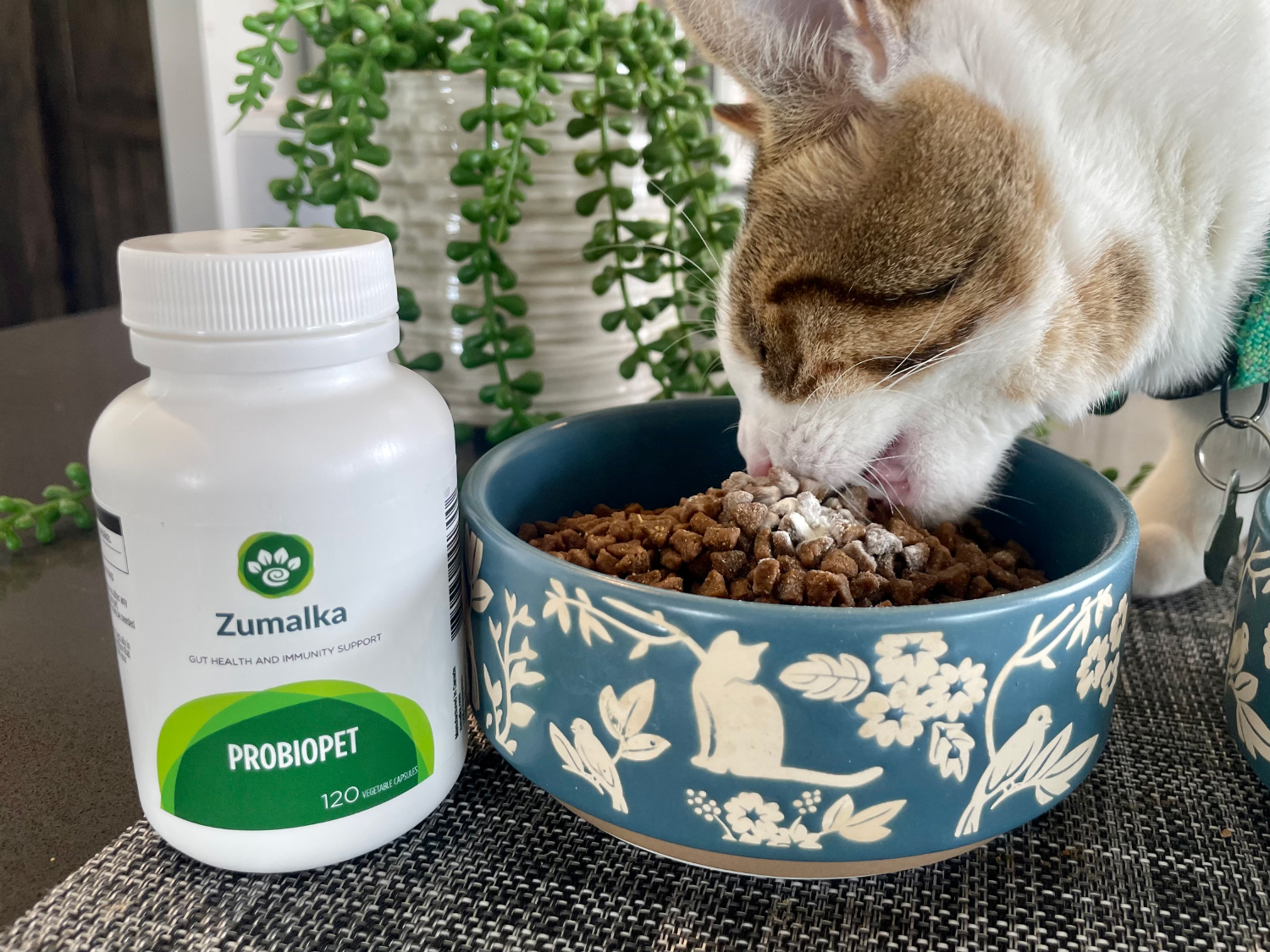
Easy Administration
All Zumalka’s supplements are made with easy administration in mind.
The sprays are meant to be added to your pet’s water bowl once or twice a day. The capsules can be opened and poured on your cat’s food and the tablets should be crushed and added to food.
Each product comes with an easy dose guide based on your pet’s weight. Many of the products are made to be used in conjunction with one another and most can be used for cats and dogs.
Focused and Wide-Ranging Uses
Because homeopathic medicines stimulate responses in the body rather than treating symptoms directly, many of them have a broad range of applications.
For instance, Piptopet can be used to support cats with cancer, promote a healthy immune system, and support general well-being.
Some products are more focused on their uses and effects. For example, Probiotpet is meant to support gut biome health and reduce gastric symptoms. But these effects have a broad range of effects from strengthening the immune system to allowing better digestion to promote a healthy coat.
For this reason, you’ll see many of Zumalka’s products included in multiple categories when you “Shop by Concern” on their website.
Reviews of the Products We Received
1. Piptopet
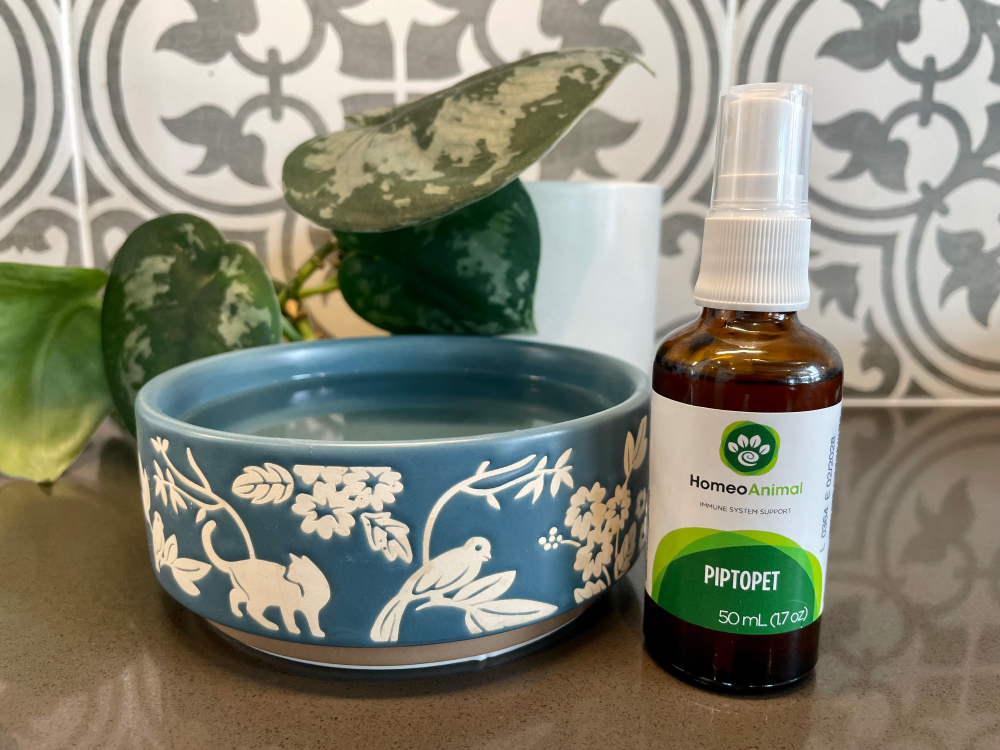
Piptopet is a homeopathic tincture made from Fomitopsis betulina mushrooms (formally known as Piptoporus betulinus). These medicinal mushrooms have a wide range of scientifically proven uses. Zumalka recommends this product for supporting overall health and improving immune health.
This tincture is especially useful for cats with malignant or benign masses. The unique properties of the mushroom help target these mutated cells in the bloodstream and neutralize them. It’s these same properties that improve immune function and general health in ill, aging, and healthy cats.
Whether your cat is picky or happy to eat anything, this product is easy to administer. Simply add 1 to 3 sprays, depending on body weight, to your cat’s water dish twice daily.
Because this product works naturally with your cat’s system to restore imbalances and target symptoms, it takes time to have an effect. But with consistent use, you should see noticeable improvement in about four to six weeks.
- Contains powerful medicinal mushrooms
- Wide-ranging health support
- Effective immune system booster
- Easy to administer
- Easy to dose
- Takes time to show an effect
- Contains some alcohol
- Pricey
2. Probiopet
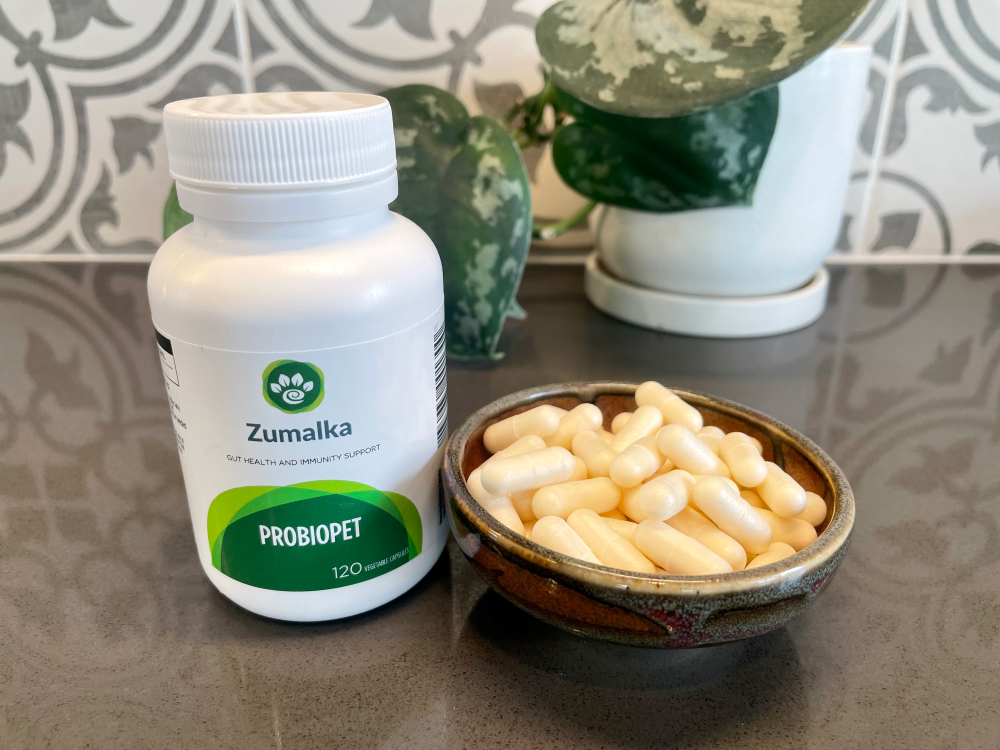
Probiopet is a powerful probiotic supplement meant to replenish the gut biome, support healthy digestion, and strengthen the immune system.
Each capsule contains 12 billion active cultures. These cultures come from 9 different strains of beneficial bacteria proven to support better health.
S. thermophilus, for instance, has been proven to reduce antibiotic-related diarrhea. Bacteria species in the Lactobacillus and Bifidobacterium genera, which are well represented in this supplement, have been proven to have positive effects on many gastrointestinal diseases, including colon cancer, as well as diabetes, allergies, and dermatitis.
This supplement comes in capsule form and is meant to be poured onto your cat’s food. The flavor is neutral and most cats have no problem eating it up. The dose varies from 1 to 3 capsules a day depending on your cat’s needs, though, this is not well explained on the packaging.
- Contains 12 billion cultures
- Has 9 different strains of beneficial bacteria
- Strengthens the immune system and supports gut health
- Easy to administer
- Neutral flavor for improved palatability
- Dosing instructions aren’t clear
- Pricey
Our Experience With Zumalka
I first found Zumalka while looking for a new probiotic for my cat, Makoa.
This mischievous little cat came into my life as a five-week-old orphan with the worst respiratory infection I’d ever seen. His lungs were filled with fluid, he couldn’t smell because his nose was so stuffy, and both his eyes were swollen shut.
After a lot of care and medications, he did eventually recover. But he still shows signs of his ordeal. His gut is wrecked from antibiotics, he has scar tissue in his eyes, and he gets recurrent respiratory infections anytime his immune system gets stressed.
After I reached out to Zumalka to inquire about Probiopet, they recommended using it in conjunction with Piptopet given Makoa’s history and recurrent infections.
I received both and started using them daily a little over a month ago.
I add Probiopet to Makoa’s breakfast each day. The capsules are coated to reduce oxidation and bacterial breakdown, which means the product doesn’t have to be kept in the fridge. It’s super easy to break the capsules open and mix them in with Makoa’s food.
For the Piptopet, I add this to my pet’s main water bowl each time I rinse it out, about twice a day. Makoa shares this bowl with my dogs, but they are both seniors with issues of their own, so I see having them share as a positive. You can also mix the spray with broth and feed it directly to your pet if you prefer.
The Probiopet seemed to have an effect very quickly. I started testing a variety of different cat food recipes for a different review shortly after starting him on it. This meant switching the proteins in Makoa’s food every day.
Normally, this would’ve caused some diarrhea issues. But with the help of Probiopet, Makoa handled the constant meal switching like a pro. He had no digestive issues and remained suspiciously non-gassy throughout the entire process.
Gauging the effectiveness of the Piptopet has been a little more difficult.
I can say that all my pets, including Makoa, readily drink the water after the tincture is added. And that Makoa has not dealt with any respiratory symptoms since I started him on the product.
One thing I have noticed is a change in the discharge from his damaged eyes. Only time will tell if this is a sign that his eyes are starting to heal.
Overall, I have been impressed with Zumalka’s products. Their ingredients are simple, powerful, and as far as I can tell, effective.
These supplements are a bit pricer than most. But they are also fairly unique in their formulations and uses, which makes it hard to compare them with other companies. What I will say is there are plenty of satisfied customers out there who are more than willing to pay the asking price for these products because they have seen real results.
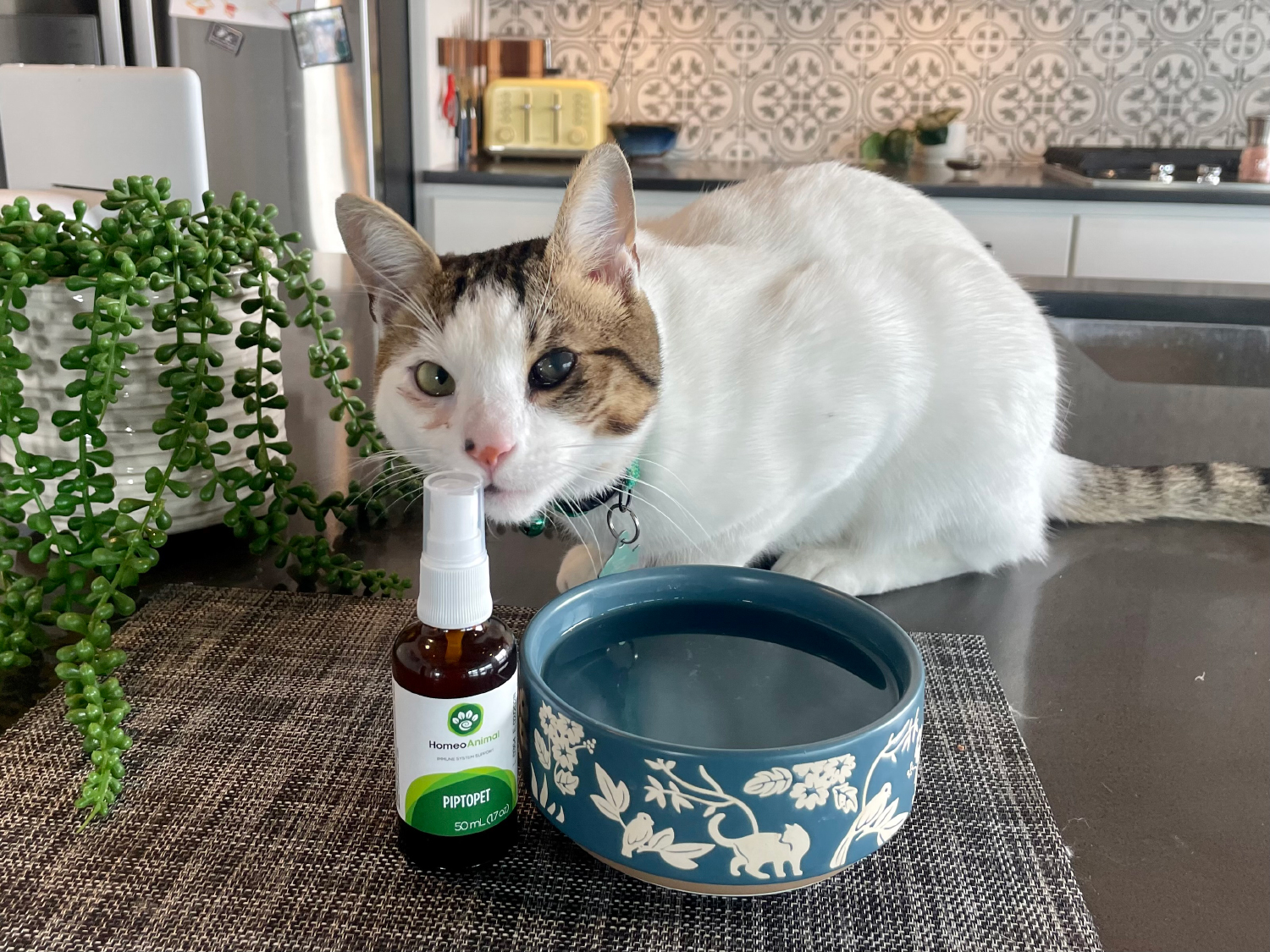
Conclusion
Whether your cat is suffering from a touchy gut, tumors, or just needs a little help aging gracefully, I recommend taking a look at Zumalka’s product line.
This homeopathic pet company has a long list of quality products made with powerful, scientifically proven ingredients. They are easy to administer and have shown some amazing results.
I was very impressed with the effects Probiotpet had on my rescue kitty, Makoa. And I’m excited to see how Piptopet continues to work over the next couple of months. If the improvements I’ve seen continue, I’m more than willing to spend the money to keep using these products.


